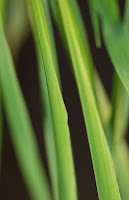Her reason for doing this was because her husband considered himself lucky to have won her, and loved her very much, although she didn't love him. They have a twenty-year old son, and I asked whether after all these years, she had grown to love her husband. She replied very decisively 'No, I have never loved him. But he loves me very much and treats me very well, so I'm happy.'
Who knows what is the right or wrong way to find happiness? In a way, I understand. To love someone is to be vulnerable to being betrayed and hurt. Being with someone who loves you more than you love them gives you security. I think in generations past, when it was more of a stigma to divorce, and people defined women mostly as wives, mothers, grandmothers, women would get married and be expected to stay married, regardless of how they were treated. In such circumstances, happiness may have been a more co-incidental thing. Marrying someone who loved you more gave you more power and security in a society where women had very little power.
In the present day, I think we (men and women) have learnt to demand more. Or maybe, we are more confident about admitting discontentment and not worrying about seeming ungrateful for what we have than our older generations were. Certainly, women have more rights and much more choice than we used to in many parts of the world.
Is that why being with someone I don't love seems so unpalatable to me? I have friends (actually, mostly male) who seem to be looking for partners without appearing to consider love. Or is it that they are too shy to admit that they are looking for love? I think that my mother, although she wishes me to find love, secretly thinks that if I end up with someone who loves me, then that will be enough for my happiness. But I think that in her mind, if I marry someone who loves me more, then in the end I will grow to love them too.
Perhaps this is true in a way. I believe that if both people in an arranged marriage trust that this is the best way to find a partner, then they will grow to love each other and be happy together. I also know that love is gradual, you learn to love someone a little and it grows over time.
And yet.... to know someone loves me more than I love them, means that I would always feel guilty or uncomfortable to accept the things they do for me. A relationship should be about balance and compromise. If the balance of giving and receiving is skewed to one side then it is difficult to maintain it. But who can gauge who is the greater giver or recipient? Being able to give your loved ones happiness is in itself a gift to the giver.
Love is more simple than we think. But it is also more complicated than we think.





